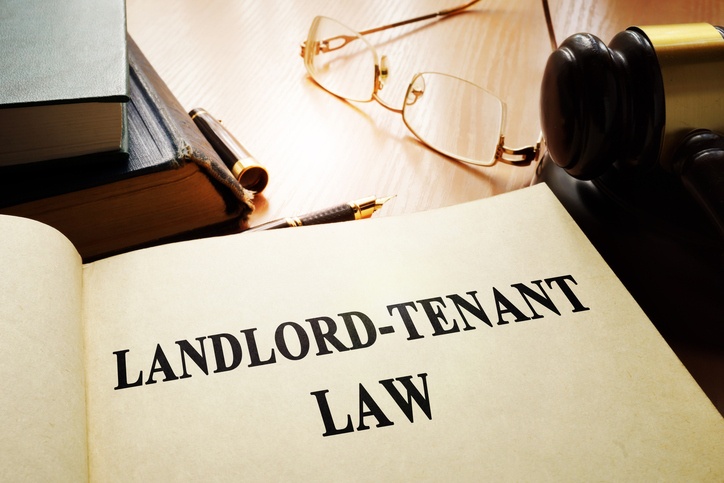Home » Uncategorised »
RLA Supports New Measures to Improve Safety of Tenants
This article is an external press release originally published on the Landlord News website, which has now been migrated to the Just Landlords blog.

The Residential Landlords Association (RLA) is expressing its support for new measures to improve the safety of private rental homes and give tenants the right to take legal action when their landlords do not comply with their duties.
Last week, the Government confirmed its support for a proposal put forward by Labour MP Karen Buck, which suggests that tenants should be given the right to take legal action against their landlords if they offer a property that is not fit for human habitation.
The Chairman of the RLA, Alan Ward, responds: “While the vast majority of landlords provide properties which are safe, legal and secure, there is a minority that brings the sector into disrepute. That is why the RLA is supporting Karen Buck MP’s Homes (Fitness for Human Habitation and Liability of Housing Standards) Bill.”
The Government has already introduced a range of powers for local authorities, enabling them to crack down on the minority of landlords that let unsafe or substandard accommodation.
This includes the ability to fine rogue landlords up to £30,000 and, from April this year, councils will also be able to issue banning orders to kick the worst offenders out of the business.
“We have also a perverse situation whereby councils will take action against landlords in the private sector, while tenants living in substandard property owned by a council or housing association are unable to obtain the same rights,” Ward says.
“Karen Buck MP’s Homes (Fitness for Human Habitation and Liability of Housing Standards) Bill helps to address this and it is one of a number of reasons why the RLA supports the legislation.”
Ward points out that the bill does not place any new standards or regulatory burdens on landlords that they are not already legally obliged to meet under the Housing, Health and Safety Rating System (HHSRS).

RLA Supports New Measures to Improve Safety of Tenants
He explains: “This does not end the pressing need for the HHSRS to be updated, with guidance especially needing to be updated to make it easier for everyone to understand.
“In fact, the requirements to make a house fit for habitation were already in the law when the Landlord and Tenant Act 1985 passed and they replicated rights first created in the Housing of the Working Classes Act 1885. They only ceased to be effective because a very low rental limit was placed on these obligations. This new bill therefore resets the position to that which was originally intended.”
Ward also highlights the fact that the bill seeks to achieve better enforcement of existing laws and regulations against rogue operators.
He continues: “With poorly resourced councils not doing a proper job at the moment of enforcing the rules, good landlords are being undermined by the criminals who bring the sector into disrepute.
“This bill ensures parity in all rental markets, giving tenants in both the private and social rented sectors the opportunities to hold to account those landlords providing accommodation that is not up to scratch.”
He concludes: “This is not a charter for spurious tenant complaints. Tenants would first need to raise their concerns with their landlord and provide sufficient time for the landlord to respond. Only after that could the tenant go to court and, even then, the court would need to be satisfied that the concern raised by the tenant was genuine and that it was not related to a problem of their own making.”
Paul Sloan, the Operations Director of Haart Lettings, also notes that tenants could always be sued if their accommodation did not meet certain standards: “This legislation is not new – tenants have always been able to take legal action against landlords, but this particular bill, which was originally brought forward two years ago, gives more rights to the tenants themselves. It failed to get enough votes in 2015, but was brought forward again in the summer in the wake of the Grenfell Tower disaster, and has now got the Government backing it needs.
“In the main, it is definitely a positive move. Everyone deserves the right to a decent and safe place to live. Most landlords would already expect this to be law, and good landlords want it to be, as those who are offering substandard accommodation bring the reputation of the whole industry down. Yet it may well be concerning to landlords worried about tenants bringing spurious claims.”
He adds: “If landlords use a good lettings agent, they will never need to worry, however. It is their job to maintain the property for the landlord and ensure they always offer a high standard of accommodation and the tenants are happy, so there is no danger of being sued.”
However, while Sloan supports any move to improve standards in the industry, he urges the Government to go further.
“The aim of this bill is to raise standards and push the bad boys out of the market, but it is just another bit of legislation and I think there is a danger that the bad boys will be driven underground rather than out,” he believes. “If the Government is going to regulate, it needs to regulate the industry as a whole – that’s the only way to raise standards across the board, not this piecemeal approach which seems designed more to win votes than to actually change the way that the rental market operates.”




